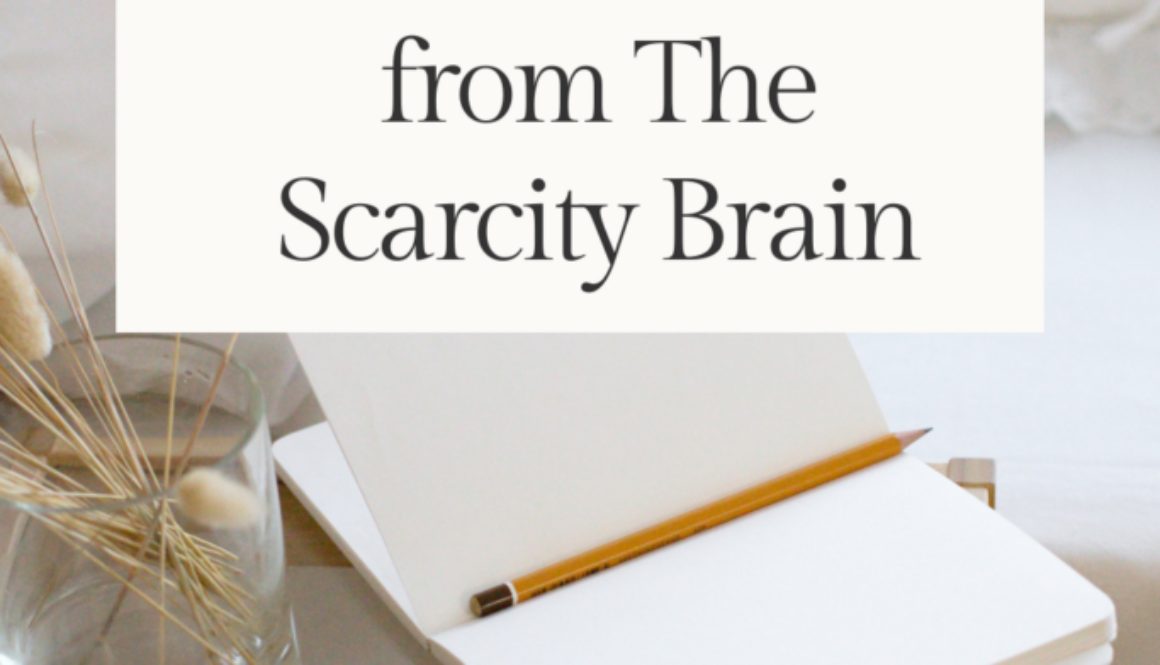Why We Always Want More: Lessons from The Scarcity Brain
Have you ever caught yourself endlessly scrolling, mindlessly snacking, or chasing goals that leave you unfulfilled? In The Scarcity Brain, Michael Easter explains how our brains, wired for survival, are trapped in a “scarcity loop” that pushes us to crave more—whether it’s food, money, or attention. While this instinct once helped humans thrive, modern society exploits it, keeping us stuck in cycles of overconsumption and dissatisfaction. I discovered this book through the Dave Ramsey Show, and its blend of neuroscience, psychology, and practical advice offered eye-opening insights that are already helping me rethink my habits and live more intentionally.
💡 Key Takeaways from The Scarcity Brain
- The Scarcity Loop Explained: Our brains are wired to chase things we think we lack—whether it’s food, money, or attention—often leading to unhealthy behaviors.
- Break the Loop: Awareness and intentionality are key to interrupting the scarcity-driven cycle and regaining control over our habits.
- Modern Scarcity Challenges: The modern world amplifies our scarcity instincts, from endless social media scrolling to overindulgence in processed foods.
🌟 First Impressions
I heard this book from Dave Ramsey Show when Michael appeared on the show. When I heard about title The Scarcity Brain, it instantly grabbed me. It promised to shed light on a problem I often feel but struggle to articulate—that insatiable pull toward “more,” whether it’s checking my phone, craving a treat, or pushing myself to the edge of burnout. I expected actionable insights and a mix of psychology, neuroscience, and real-life examples—and it delivered.
📖 The Reading Experience
The book starts with a powerful premise: our brains are biologically hardwired to chase scarcity. Michael Easter dives into the science behind why we’re drawn to things we feel we don’t have enough of—whether it’s food, money, attention, or achievement.
The narrative is engaging, blending relatable anecdotes with rigorous research. Easter introduces the concept of the “scarcity loop,” a vicious cycle where the more we indulge in chasing scarcity, the more we reinforce those behaviors. For example, the book explains how modern technology and processed foods exploit our scarcity instincts, making us crave more than ever before.
While the concepts are profound, some sections felt a bit heavy on detail, particularly the scientific explanations. However, Easter balances this with practical advice, making even the denser chapters worth pushing through.
🌱 Post-Reading Reflection
After finishing The Scarcity Brain, I found myself pausing to reflect on my own behaviors. Why do I endlessly scroll on social media or reach for snacks even when I’m not hungry? Easter’s insights helped me identify these patterns as part of a scarcity loop.
One of the most transformative ideas was learning to “sit with discomfort.” By recognizing that I don’t need to immediately satisfy every craving, I’ve started to reclaim control over my habits. For example, I’ve begun leaving my phone in a dedicated location downstairs when I get home and don’t bring it upstairs. I use my Apple watch to set a timer for social media—and it’s been freeing.
✍️ Favorite Quotes & Why They Matter
-
“So the (Scarcity) loop is an ancient game that developed to keep us alive. It compelled us to persist in the face of uncertainty and do it all over again. Quitters die.”
This quote perfectly captures the central premise of the book. It helped me see how evolutionary traits that once served us now work against us in today’s environment.
-
“One reason we like escaping into the scarcity loop is that there is no uncomfortable, anxiety-inducing uncertainty in it. It’s safer and easier. We can know whether we did good or bad.
This resonated deeply because I often seek instant gratification, whether through food or distractions. This idea has pushed me to practice mindfulness instead.
-
“Unless we become aware of scarcity brain and elements of the scarcity loop baked into food— how scarcity pushes us to crave foods that only set off a spiral of more craving— and choose to eat like Leoncio. To eat enough.”
A reminder that simply identifying my triggers can be the first step toward change—a powerful insight I’ve started applying in my daily life.
🎯 Final Recommendation
The Scarcity Brain is an eye-opening book that combines science, psychology, and practical advice to help us understand and overcome our scarcity-driven instincts. Whether you’re looking to break unhealthy habits, reduce distractions, or live more intentionally, this book offers valuable tools and insights.
I highly recommend it to anyone who feels trapped in cycles of overindulgence or constant striving. It’s particularly relevant in today’s world, where our scarcity instincts are exploited by technology, advertising, and modern conveniences.


